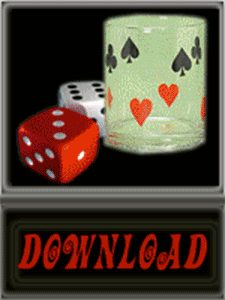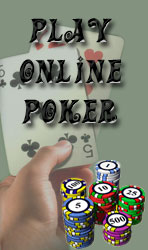Pokerwiner.com → Lessons of poker
RAISING TO DRIVE OUT WORSE HANDS WHEN YOUR OWN MAY BE SECOND BEST
Depending on the size of the pot and your assessment of your own and your opponent’s hand, it may be correct t raise with what you believe may be the second-best hand if you can get the third-, fourth- and fifth-best hands out.
The reasons for this play were suggested in an earlier chapter.
If, for instance, the bettor has a 50 percent chance of winning the pot, you have a 30 percent chance, and two other hands each have a 10 percent chance, you improve your chances by driving those two worst hands out with a raise.
Now the best hand may have a 60 percent chance of winning, but you’re improved your own chances to 40 percent.
In seven stud you may, for instance, have two kings against a probable two small pair.
Two other players behind you appear to be drawing to straights.
By raising them out, you almost surely win when you improve to kings up and may win when it turn out your single opponent had only one pair and, say a flush draw.
However, if the straight draws stay in, you may lose with kings up against an unimproved two pair when one of the straights gets there.
RAISING TO DRIVE OUT BETTER HANDS WHEN A COME HAND BETS
Let’s say on fifth street in seven stud you have two 10s, and the player to your right bets with an obvious flush draw.
You know there are a couple of players behind you with higher pairs than yours.
Nevertheless, you may be in a position to raise if you think the better hands will fold rather than call a double bet.
When they do fold, you become the favorite heads-up against the come hand, and if that player misses his flush, your raise on fifths street has won you the pot.
The player betting on the come was expecting at least two callers in order to get proper odds for his bet.
Your raise turns that bet into a mistake since he is not getting a proper return for his investment.
At the same time, when the players behind you fold after you raise, they too are making a mistake since their hands are better than yours.
On the other hand, if you suspect one or both of the higher pairs behind you will call your raise, not only should you not raise, you should not even call the original bet since you are beat in two places and may get beat in a third.
This somewhat rare situation is one of those times when your only alternatives are to raise or fold.
It is a time when a call is patently incorrect.



